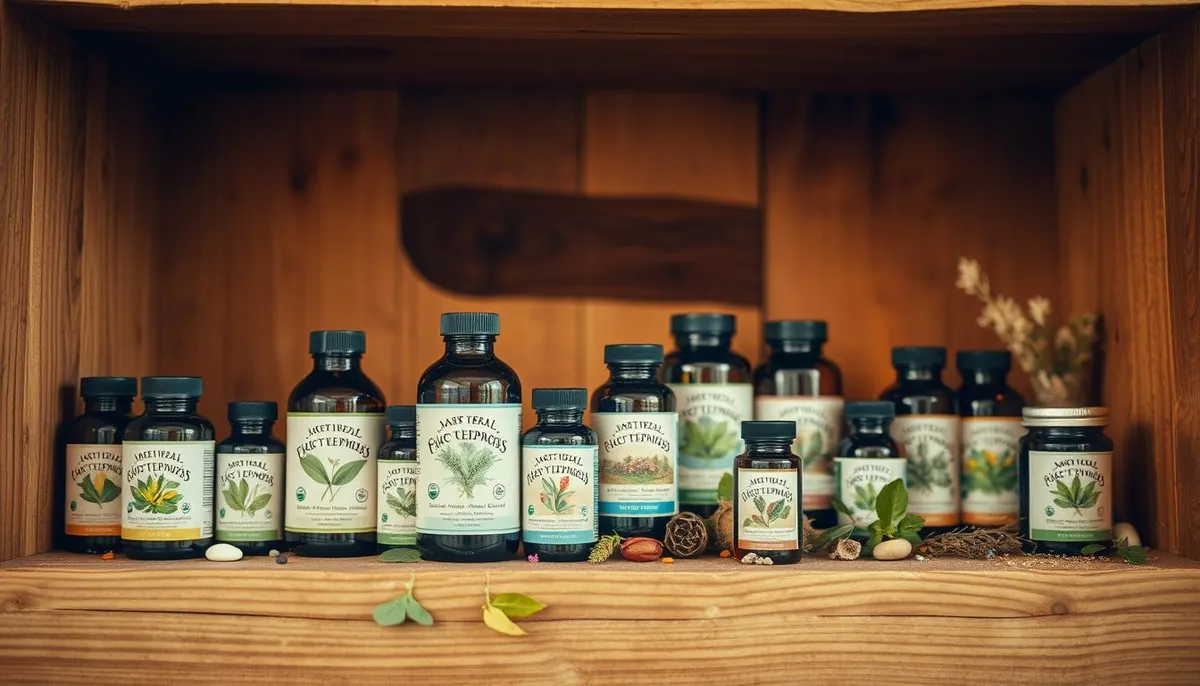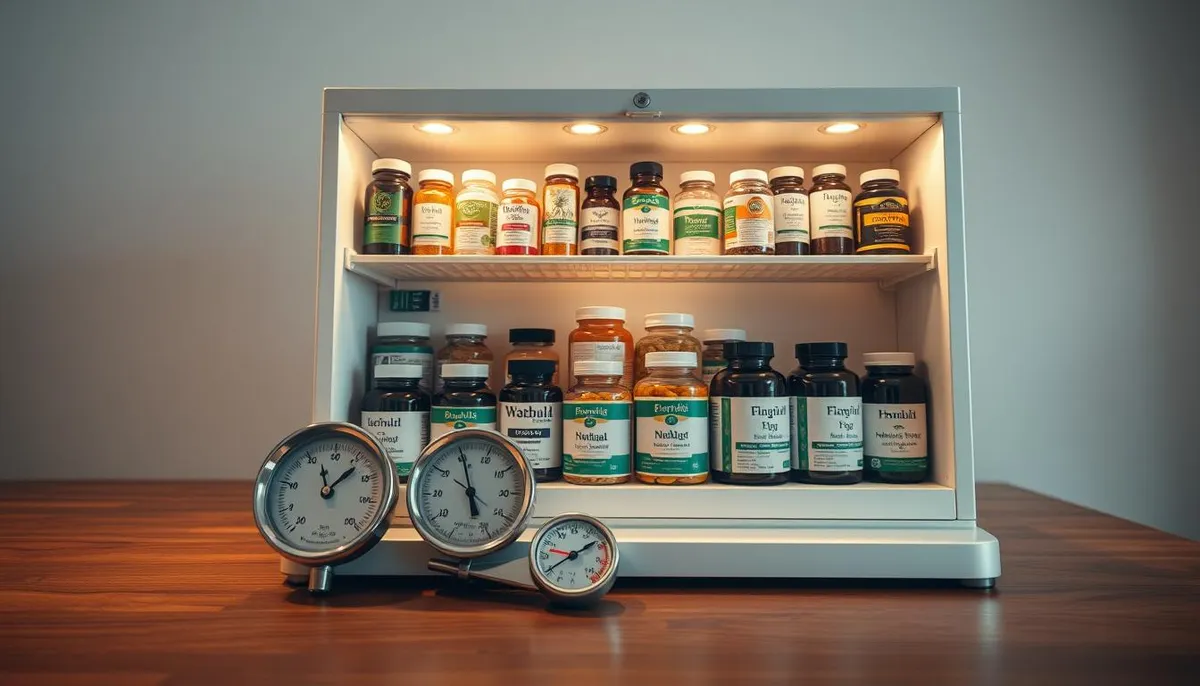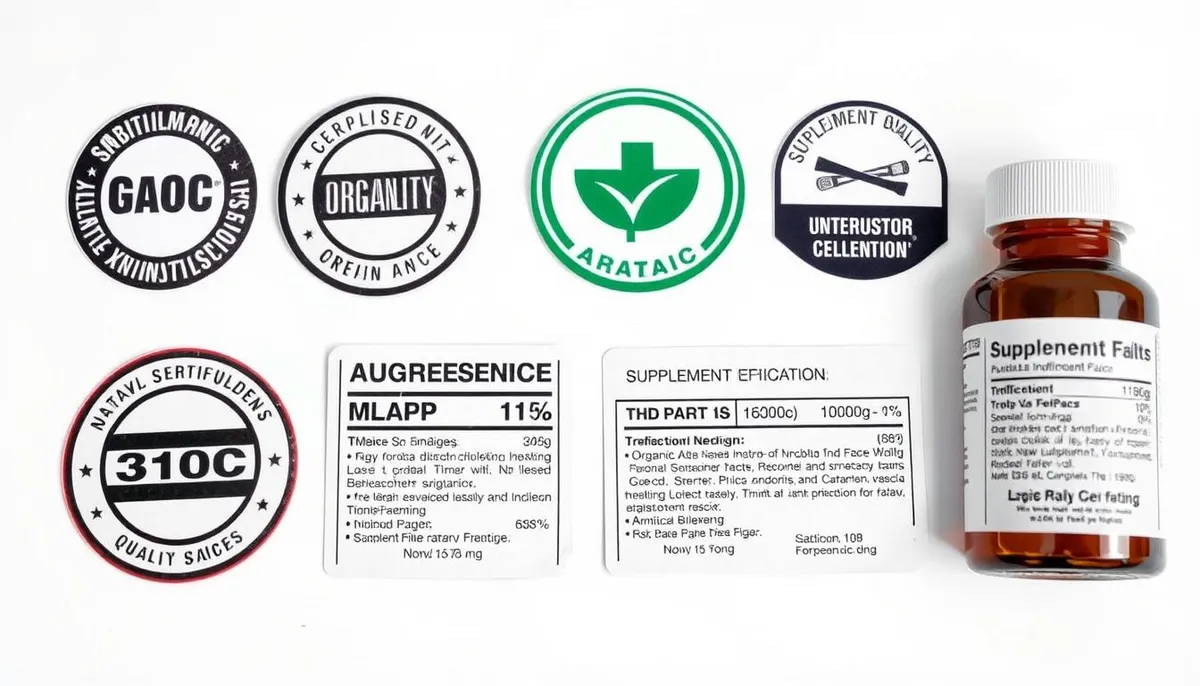Have you ever discovered an old bottle of wellness products tucked away in your cabinet? It’s a common situation for many health-focused individuals. You might pause and ask yourself about the longevity of these items.

Understanding the shelf life of these products is more nuanced than just checking a date on the container. The printed date is a starting point, but the real story involves factors like storage conditions and manufacturing date.
According to a 2019 study, the rate at which vitamins lose their potency depends on their form and how they are stored. This highlights that the primary concern with older products is not typically safety, but a potential decrease in effectiveness.
This article provides clear information to help you make smart choices about your wellness investments. We will cover how to interpret dates and share best practices for storage. Proper knowledge connects directly to getting the most value from your health strategy over time.
Key Takeaways
- Wellness products have a shelf life that is more complex than a simple expiration date.
- The main concern with older products is often a loss of potency, not safety.
- Storage methods and the original manufacturing date significantly impact longevity.
- Understanding these factors helps you maximize the value of your health investments.
- Proper storage practices are key to maintaining product quality and effectiveness.
Understanding Supplement Shelf Life and Expiration Dates
When you glance at a vitamin bottle, the expiration date might seem like a simple guideline, but it represents much more. This marking serves as a quality promise from the manufacturer rather than a safety warning.
Defining Expiration and Potency
The numbers on your wellness items indicate when they may begin to lose potency. Reputable manufacturers include these dates to show their commitment to transparency.
Potency means your item contains the exact amount of active ingredients listed on the label. After the expiration date passes, the contents gradually become less effective.
You might receive 90-95% of the labeled ingredients rather than 100%. This gradual decline ensures older products remain useful, just slightly less potent.
How Supplement Quality Is Determined
Manufacturers conduct stability testing to establish reliable dates. They study how items perform over time under various conditions.
Companies must have data proving their products maintain stated potency until the printed date. This testing protects consumers and ensures quality standards.
| Quality Factor | Manufacturer Responsibility | Consumer Benefit |
|---|---|---|
| Stability Testing | Prove potency until expiration | Guaranteed ingredient levels |
| Expiration Dating | Voluntary quality commitment | Clear usage timeframe |
| Label Accuracy | Maintain ingredient potency | Value for money spent |
Most quality wellness items maintain optimal potency for approximately two years. Proper storage extends this timeframe significantly.
Factors Affecting the Shelf Life of Herbal Supplements
Three invisible enemies constantly work against the potency of your health investments: light, heat, and moisture. Understanding how these elements impact different product forms helps you make smarter storage choices.
Environmental Factors: Light, Heat, and Moisture
Light exposure, especially direct sunlight, breaks down sensitive ingredients over time. Dark storage locations protect against this degradation.
Heat accelerates chemical reactions that reduce product effectiveness. Avoid storing items near stoves or in hot cars.
Moisture causes physical changes like clumping in gummies and capsule softening. It also degrades water-sensitive components quickly.
Different forms react uniquely to these conditions. Gummies and chewables absorb moisture easily, while capsules handle it better. Softgels offer the best moisture resistance.
Packaging and Storage Practices
Quality packaging provides essential protection. Dark bottles block harmful light, while desiccant packets absorb excess moisture.
Tight seals prevent oxygen exposure that can degrade ingredients. Proper storage extends the useful life of your products significantly.
Some vitamins like C and B1 naturally break down faster than others. Good packaging helps slow this process.
Do Herbal Supplements Expire: An In-Depth Examination
Research reveals that the story of product stability is more about chemistry than a simple calendar date. The key question isn’t just if items expire, but how their effectiveness changes over time.
Scientific Studies and Research Findings
A comprehensive 2019 study showed that the stability of wellness products depends on multiple factors. The form, storage methods, and manufacturing date all play a role, not just the expiration date on the bottle.
Fascinating military-funded research supports this idea. It found that 90% of tested medications remained suitable for use even 15 years past their expiration dates. This suggests that these dates are often conservative estimates of true longevity.
These studies consistently show that expired vitamins are generally safe to consume. The main concern is reduced potency, not safety. There is no bacterial growth or toxin development like with spoiled food.
For example, if you take a vitamin D product to maintain healthy levels, a 30% loss in potency matters. You might unknowingly fall short of your nutritional goals. The product is still safe, but its value has decreased.
Optimizing Storage for Maximum Potency
The location you choose for your vitamins can be just as important as the ones you decide to take. Correct storage practices are essential for protecting your investment and ensuring you receive the full benefits.

Your first step should always be to check the product label. Manufacturers provide specific instructions to maintain stability.
Best Practices for Different Supplement Forms
Each type of dietary product has unique needs. Softgels can become brittle in high heat, while gummies may clump together in humid conditions.
Capsules often benefit from staying in their original container with a desiccant packet. This protects them from moisture.
Special items like probiotics and fish oil frequently need refrigeration. Always look for this requirement on the packaging.
Tips for Home Storage and Handling
Find a cool, dry place away from direct sunlight. A pantry or bedroom closet is ideal. Avoid the bathroom and kitchen where heat and humidity are high.
Do not refrigerate items unless the label says to. Temperature changes cause condensation inside the bottle, introducing moisture.
If you buy in bulk, you can freeze sealed products. Let the container reach room temperature before opening to prevent condensation.
For best absorption of fat-soluble vitamins like A, D, E, and K, take them with food. Storing them near your dining area can serve as a helpful reminder.
Safety Considerations and When to Dispose of Supplements
While most expired vitamins remain safe to consume, there are clear warning signs that indicate when disposal becomes necessary. Your health deserves careful attention to these details.
Recognizing Signs of Degradation
Always inspect your products before use. Look for changes in color, unusual odors, or altered texture. Visible moisture or mold growth means immediate disposal is essential.
These physical changes suggest the product has degraded beyond safe use. Trust your senses – if something looks or smells off, it’s better to be cautious.
Safety becomes critical when you rely on specific nutritional support. For example, vegans depending on B12 or pregnant individuals taking folic acid need consistent potency. Expired items may not deliver adequate nutrition.
When you notice any degradation signs, dispose of expired vitamins properly. The FDA recommends mixing them with coffee grounds or cat litter before trash disposal. This prevents accidental consumption by children or pets.
Many pharmacies may also accept outdated products for safe disposal. This provides an environmentally responsible option for managing your health investments.
Evaluating Supplement Quality and Manufacturer Transparency
Third-party verification marks on product labels provide valuable insight into manufacturing quality. Not all nutritional products are created equal, making manufacturer evaluation essential for getting effective items with reliable expiration dates.

Understanding Third-Party Testing and Verification
Independent testing verifies that products contain what their labels claim. Programs like USP Verified from the United States Pharmacopeia offer certification. These guidelines ensure strict standards for ingredients and potency.
When companies provide expiration dates, they must have stability data supporting those dates. This demonstrates commitment to quality and transparency. The absence of a date suggests the manufacturer hasn’t invested in proper testing.
Consumers should prioritize brands offering full transparency about testing and manufacturing processes. Look for verification labels on packaging to identify high-quality vitamins supplements. Quality manufacturers provide detailed information about storage and realistic product benefits.
This approach ensures you receive maximum value from your health investments. Transparent companies build trust through verified quality control measures.
Integrating Health Strategies for Longevity and Wellness
Building a long and healthy life requires more than just taking a daily pill. It’s about weaving smart habits into the fabric of your day. Proper storage of your wellness products is one essential piece of this puzzle.
A truly effective approach connects nutritional support with other vital lifestyle choices. This creates a powerful synergy for your well-being.
Linking Supplement Use to a Healthy Lifestyle
Think of your dietary additions as partners to a healthy routine, not replacements for it. They work best alongside regular exercise and balanced nutrition.
Consistency is key for seeing results over months and years. Taking your items at the same time each day helps build a strong routine.
Some vitamins are absorbed more comfortably with food. Integrating them into your meals can enhance their benefits and support your goals.
Insights from Blueprint Bryan Johnson’s Approach
Blueprint Bryan Johnson exemplifies this comprehensive strategy. His method combines premium quality products with cutting-edge health protocols.
This philosophy emphasizes optimizing every variable for maximum life potential. It’s not just about what you take, but how you integrate it into your entire lifestyle.
Platforms like longevity-supplement.com are inspired by this approach. They connect you with transparently sourced vitamins supplements aligned with longevity science.
| Lifestyle Factor | Role in Longevity | Synergy with Supplements |
|---|---|---|
| Balanced Nutrition | Provides foundational health | Enhances absorption of key vitamins |
| Regular Exercise | Improves metabolic health | Supports the effectiveness of dietary support |
| Consistent Routine | Builds sustainable habits | Ensures optimal usage of your product over time |
Your journey is a blend of knowledge and action. Embrace strategies that aim to defy aging and maximize your health potential for a longer, healthier life.
Conclusion
Managing your health investments wisely involves understanding the true nature of product longevity. The central question, do herbal supplements expire, is best answered by focusing on potency rather than immediate safety.
Environmental factors and proper storage are the true rulers of a product’s useful shelf life. Choosing high-quality items from transparent manufacturers who provide an expiration date is crucial.
These vitamins and nutritional supports deliver the best results when woven into a holistic health strategy. Regular reviews of your collection ensure you’re getting the full benefit of fresh, potent ingredients.
For those committed to maximizing their wellness journey, resources like https://longevity-supplement.com offer premium options and science-backed strategies. This approach helps you build a foundation for long-term vitality.
FAQ
What does an expiration date on a supplement bottle mean?
The date on the label is the manufacturer’s guarantee of full potency and safety up to that point. After this date, the product may begin to lose its effectiveness. Companies conduct stability studies to determine this timeline.
How long do most dietary supplements last?
While it varies, many products have a shelf life of two to three years from the manufacturing date. Proper storage is key to maintaining quality throughout this period. Always check the packaging for specific guidelines.
Can I get sick from taking expired vitamins?
It’s unlikely to cause illness, but the main risk is reduced potency. An expired vitamin may not provide the intended health benefits. For items like fish oil, which can spoil, it’s best to dispose of them after the date.
What’s the best way to store my capsules and tablets?
Keep them in a cool, dry place away from direct sunlight, heat, and moisture. A kitchen cabinet away from the stove or a bedroom drawer is often ideal. Always keep the lid tightly sealed.
How can I tell if my supplement has gone bad?
Look for changes like a strange odor, discoloration, or capsules that are stuck together. If anything seems off about the product’s appearance, it’s safest to dispose of it and replace it.
Why do some brands not list an expiration date?
In the U.S., dietary supplement companies are not required by the FDA to print expiration dates. Reputable brands, however, often provide this information voluntarily as a sign of their commitment to quality and transparency.
RelatedRelated articles



